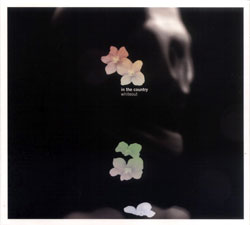
Norway's Rune Grammofon label has quietly eked out a reputation as the ECM of the aughts, and rightly so. Much like Manfred Eicher's Editions of Contemporary Music (ECM has never formally admitted to being solely a jazz label, and it isn't), Rune Grammofon refuses to be categorized. The label has embraced nu-school prog, cutting edge electronica, post-modern classical, indigenous musics, and experimental tropes of many stripes in addition to much in the way of trad and avant-garde jazz. All releases come tucked within gorgeous, tri-fold digipaks, rendered by in-house graphic artist and recording musician Kim Hiorth°y, every bit as classy to have and to hold as Eicher's venerable imprint.
Of course, such eclecticism comes with a price: one can't be expected to embrace Rune Grammofon's variety wholeheartedly. Bearing that in mind, In the Country come across as one of the label's more straightforward and less daring ensembles, contrary to any mandate the imprint would rather you follow. Whiteout also refuses to align itself with anything as simplistic as categorizable genre music (is it jazz? Is it prog?), though elements from such areas are clearly recognizable. The first three pieces are cut from clearly recognizable Norwegian jazzwood: sparse, elegiac, replete with the kind of minimal piano clusters favored by Paul Bley, this is a contemplative, quiet music that feels expansive but in reality proffers intimate climes instead of broad spaces. Exquisitely recorded and presented, "Kungen" could be Arild Andersen or Eberhard Weber on any given Sunday, stately and methodical, yet this is music of a decidedly undemonstrative nature; it's so overly mannered and polite that it evokes nothing less than European dinner music, more garde than avant.
Both the pace and the party pick up on track four, "Ursa Major", where vibes and orchestral flourishes trade licks with strident basslines and rollicking keys, recalling some of the prog jazz of early Steps or even nascent Weather Report (minus the technological gimcrackery). However, this is but one bright spot on the horizon: clearly the group are more comfortable puttering about the frosty landscapes of "Dead Water" and "W.a.r.m." than rubbing sticks together to see if sparks might ignite. Which is where Whiteout becomes just that, a pretty picture eventually blurred out into a monochromatic surface with little diversity and just as little innate substance.
Comments and Feedback:



More Recent Reviews, Articles, and Interviews @ The Squid's Ear...


|

